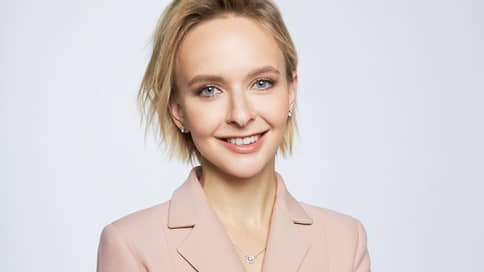The commander of the S7 gives way to the chair – Newspaper Kommersant No. 199 (7400) of 10/26/2022
[ad_1]

The daughter of the founder of S7 Tatyana Fileva left the post of head of the group. Kommersant’s sources say that she left the country, but there is no talk of a final relocation. Ms Fileva and her father remain shareholders of the group. Experts explain personnel reshuffles in Russian airlines against the backdrop of sanctions by the need to strengthen the role of technical managers, and in some cases by the desire of top managers and owners to minimize reputational costs due to a conflicting break in relations with European lessors.
Tatyana Fileva, co-owner of the largest private air group S7 Group and the daughter of its founders Vladislav and Natalia Filev, has resigned as CEO of C7 Group of Companies CJSC. As reported on October 25 in the press service of the company, this position will be taken by the deputy of Mrs. Fileva Dmitry Kudelkin, who has been working in the team since 2004. According to Kommersant’s interlocutors, Mr. Kudelkin led the company’s financial unit for many years, “made key decisions in the crises of 2008 and 2014”, oversaw strategic directions for sales, tariffs and issues of efficient use of the fleet.
Kommersant’s sources in the aviation industry say that since the end of February, Tatyana Fileva has often “not been present in Russia” and “left the country for a long time.” Kommersant’s interlocutors in S7 confirmed this information, noting that there was no talk of a final move. Other sources add that the Filevs “in general travel frequently: it was always like this, even until February.”
Also, interlocutors in S7 deny that the departure of Tatyana Fileva may be a signal that the family wants to leave the business.
“Rumors that the Filevs are selling the company appear every one and a half to two years and never have a basis,” one of Kommersant’s sources noted, emphasizing that “globally nothing changes.”
An interlocutor in the leadership of one of the Russian airlines noted that during the year that Tatyana Fileva held the post of general director, “I did not have time to interact with her and notice her presence at departmental meetings.” Vladislav Filev remained the representative of S7 at meetings with officials, contractors and financial partners all these years, interlocutors in the company say and confirm in the industry. “It seems to many from the outside that after the departure of Natalya Fileva (died in a plane crash in 2019.— “b”) Vladislav retired, but this is not so, ”says a source in the AEVT: he reduced his presence in the public field, but retained a“ lively interest ”in the company’s processes.
Former and current S7 employees assure that Tatyana Fileva was not a nominal leader: “She participated in negotiations, boards of directors, development and signing of important decisions, checking reports of budget committees and quarterly reports of divisions.” Another source adds that Ms. Fileva “introduced European standards for reporting on ESG, environmental friendliness and gender equality in the company.” According to the interlocutor of Kommersant, “it was important for her to increase the presence of women in the group, in the flight crew and in leadership positions.” Among other examples of “Western doing business”, colleagues talk about her very path in the airline, where Tatyana Fileva joined in 2008 as an analyst in one of the departments: “It was important for her to go through the hierarchy and understand the work from scratch.”
Tatyana Fileva, co-owner of the S7 group, in an interview with Forbes Woman on March 16, 2020:
“Business is successful, so I think that I deserve my position, I think that I am talented.”
One of Kommersant’s sources in the industry believes that the reason for leaving could be Ms. Fileva’s unwillingness to “bear the risks of subsidiary liability for the aircraft remaining in the Russian Federation,” as well as against the backdrop of continuing problems with the supply of spare parts. Other interlocutors of Kommersant, however, doubt that “taking into account the most powerful competencies of the S7 technical center, even this general industry tension could force the shareholder to leave.”
Since the beginning of the sanctions, the leadership of a number of Russian airlines has changed, in particular the entire Aeroflot group.
In some cases, behind the changes is the need for carriers to dramatically increase the technical management of the business, “especially where there was an imbalance between the commercial and technical components,” Kommersant’s interlocutors in the industry say.
Alexander Lanetsky, General Director of Friendly Avia Support, agrees with this, and he also notes the likely desire of individual leaders to “distance themselves from the conditions of the game that they have been imposed on and not turn into business outcasts.” “The government formally closed the possibility of returning the aircraft to the owners, but this does not remove the questions of specific lessors to specific leaders with whom they dealt,” he explains, “not everyone is ready for such marginalization in the international market.”
The expert also does not believe in the desire of Vladislav and Tatyana Filev to part with the aviation business: “This is the only large, truly private and noticeable passenger company on the world market, which was not backed by strong state structures, like other players.” Mr. Lanetsky speaks of the Filevs as “a rare type of businessmen who know how to talk with foreign colleagues.”
[ad_2]
Source link





